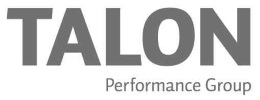As law firms and companies expand legal teams to pursue new business opportunities, competition is intensifying for job seekers with in-demand skills and niche backgrounds, according to Robert Half Legal. The firm’s Salary Guide found applicants with expertise in high-growth practice areas and industry sectors, including commercial law and healthcare, are seeing greater-than-average starting salaries, signing bonuses and multiple offers.
“Employers are placing a premium on associates and paralegals who can assume full caseloads and deliver quality results to clients,” said Charles Volkert, executive director of Robert Half Legal. “The most sought after legal professionals possess three to five-plus years of experience in a hot practice area, technological proficiency, and strong interpersonal skills.”
Here are five hiring trends in the legal field, according to Robert Half Legal research:
- Recruiting and retention strategies are more essential. As baby boomers begin to exit the workforce and vacate leadership roles, employers are re-evaluating succession plans and focusing on how to become more attractive to Gen Z workers.
- Employers are enhancing benefits. Law firms and companies are emphasizing greater flexibility, training, career advancement opportunities and other perks valued by job seekers, such as telecommuting and business casual dress codes.
- Hybrid or blended paralegal/legal secretary roles are more common. Aside from practice area experience, the most marketable legal support professionals have strong technology skills and are able to perform multiple job functions.
- Foreign language skills are in demand. In certain markets, bilingual abilities, including Spanish language skills, have become increasingly vital for attorneys and legal support professionals.
- The market is improving for junior-level attorneys. While hiring has not yet returned to pre-recession levels, many law firms are expanding summer clerkship programs and hiring newly minted associates who can meet client demands for lower bill rates.
Volkert added that employers are more willing to negotiate compensation and benefits to attract and retain top talent. “Offering competitive pay, interesting work and advancement opportunities are highly effective strategies for improving employee engagement and reducing turnover,” he said.
